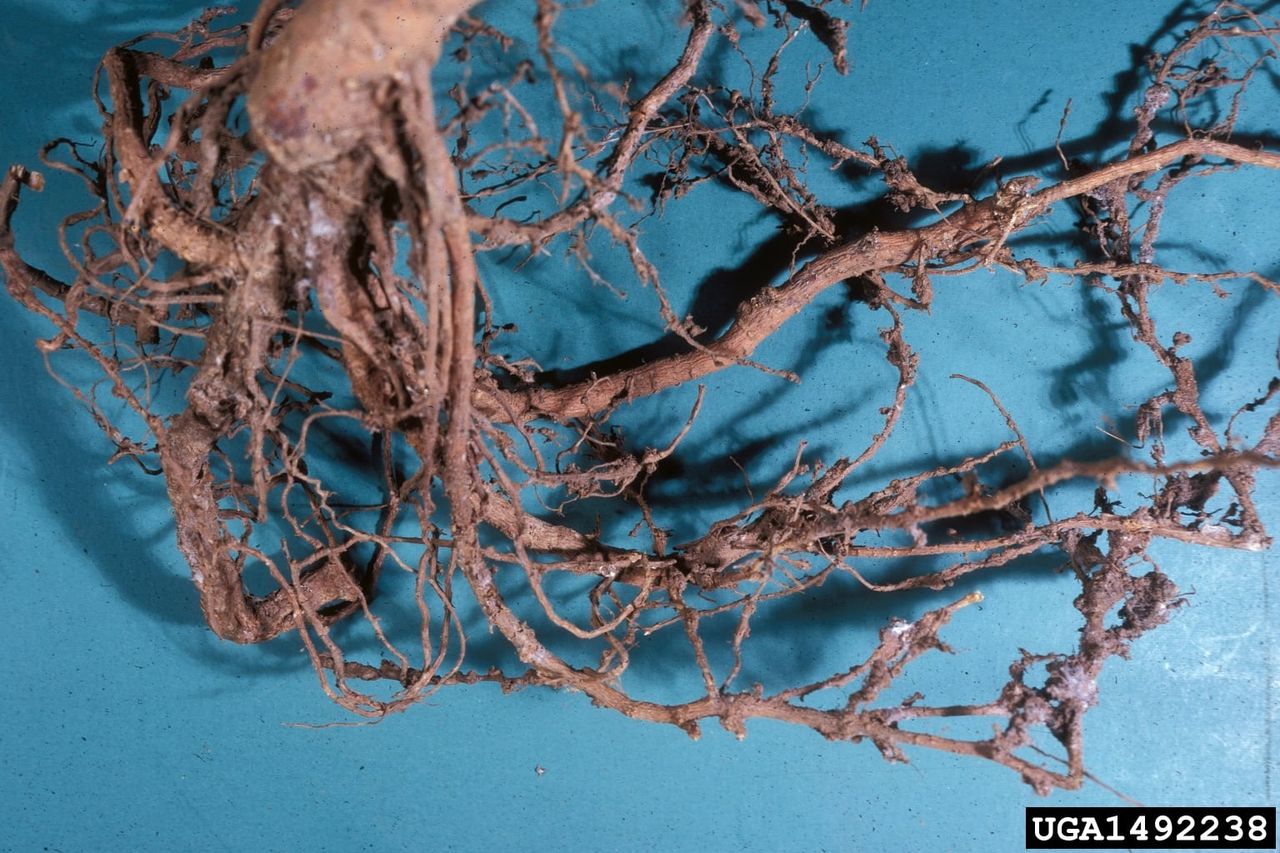Apricot Nematode Problems – Treating Apricots With Root Knot Nematodes


Root knot nematodes are tiny, parasitic roundworms that live in the soil, where they feed on the roots of at least 2,000 different plant species, including apricots and other stone fruits. Controlling root knot nematodes of apricot involves a combination of approaches, including planting disease-resistant varieties, along with sanitation and other cultural practices. Read on to learn more about apricot nematode problems.
Apricots with Root Knot Nematodes
Root knot nematodes of apricot penetrate roots with a sharp, spear-like mouth part and suck out the contents. When one cell has been depleted, the nematodes move on to new cells. Apricot nematode problems are often compounded because the damage caused by the nematodes creates an easy entry for many types of bacteria and fungi. Root knot nematodes of apricot aren’t visible above soil level, but when the pests feed on the roots, symptoms may show up as stunted growth, wilting, pale leaves, or twig dieback. The symptoms often mimic those of dehydration or other problems that prevent the tree from taking up water and nutrients. Signs of apricot nematode problems are more apparent on tree roots, which may display hard, swollen knots, or galls, as well as stunted growth and, in some cases, rot. Root knot nematodes of apricot move through the soil very slowly on their own, traveling only a few feet (1 m.) per year. However, the pests are transported from place to place quickly when they hitch a ride on contaminated plant material or farm equipment, or in water run-off from irrigation or rain.
Apricot Nematode Treatment
Preventing apricots with root knot nematodes is the best defense. Plant only certified nematode-free apricot seedlings. Work generous amounts of compost or other organic matter into the soil at planting time to improve soil quality and maintain healthy trees. Sanitize garden equipment thoroughly with a weak bleach solution before and after working in affected soil to prevent pests from being transported on tools. Be aware that root knot nematodes of apricot can also be transported on vehicle tires or shoes. Avoid any activity that moves infected plant material or soil into unaffected areas. Provide apricot trees with sufficient water, especially during hot weather and periods of drought. However, water carefully to avoid soil runoff. Remove dead plant matter from the area and dispose of it properly, especially tree roots. There are no recognized apricot nematode treatments for the home garden. Orchardists often use nematicides, but the products are very expensive and not usually available for non-commercial growers.
Gardening tips, videos, info and more delivered right to your inbox!
Sign up for the Gardening Know How newsletter today and receive a free copy of our e-book "How to Grow Delicious Tomatoes".

A Credentialed Garden Writer, Mary H. Dyer was with Gardening Know How in the very beginning, publishing articles as early as 2007.
-
 Why Are My Seedlings Wilting? 6 Common Causes – And How To Save Them
Why Are My Seedlings Wilting? 6 Common Causes – And How To Save ThemWilted seedlings are a definite sign that something is not right. Learn how to diagnose the problem and bring baby plants back from the brink.
By Teo Spengler
-
 Bugged About Strawberry Pests? 6 Common Pests, Plus How To Protect Your Precious Strawbs
Bugged About Strawberry Pests? 6 Common Pests, Plus How To Protect Your Precious StrawbsStrawberry plants looking a little under the weather and not sure why? Check to make sure they haven’t come a-cropper to one of these classic strawberry pests
By Tonya Barnett